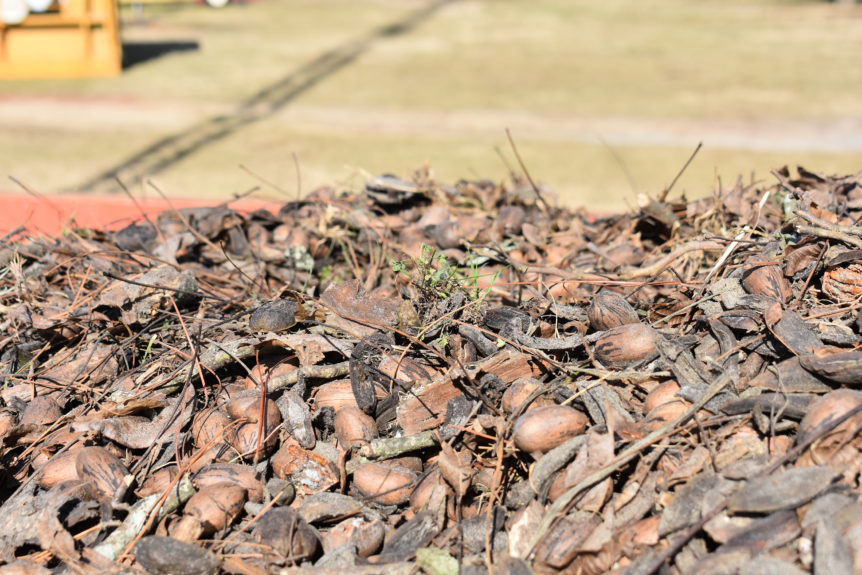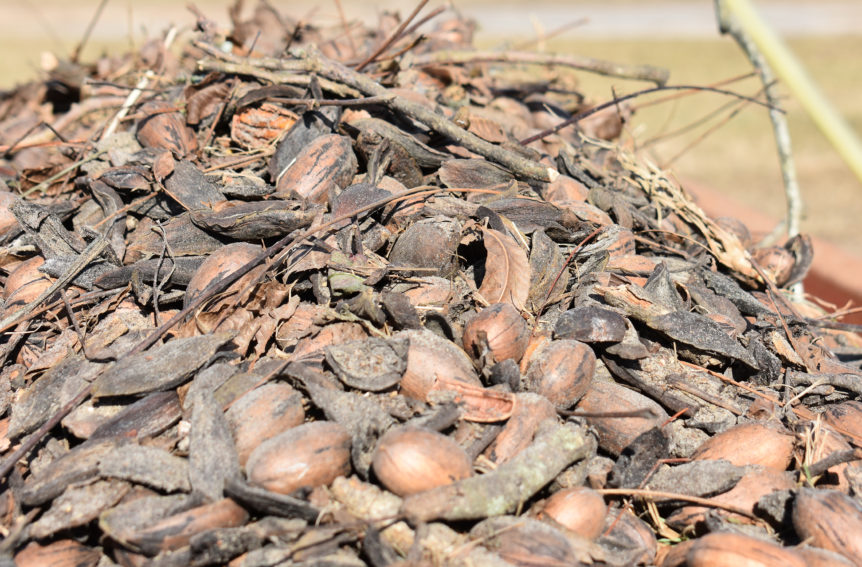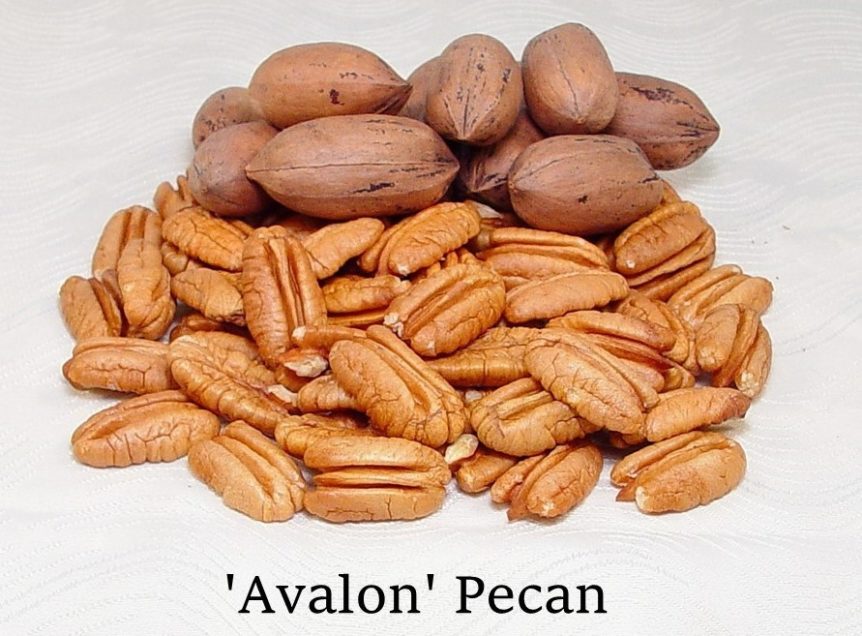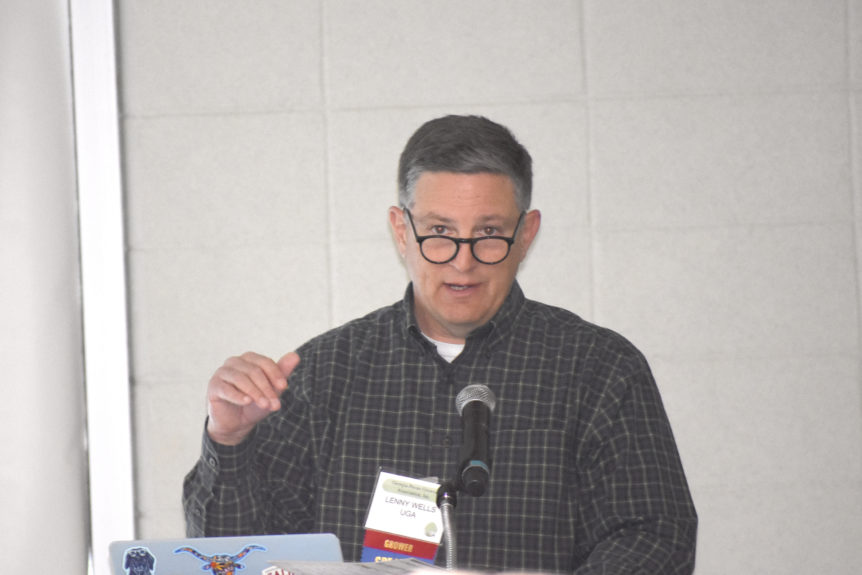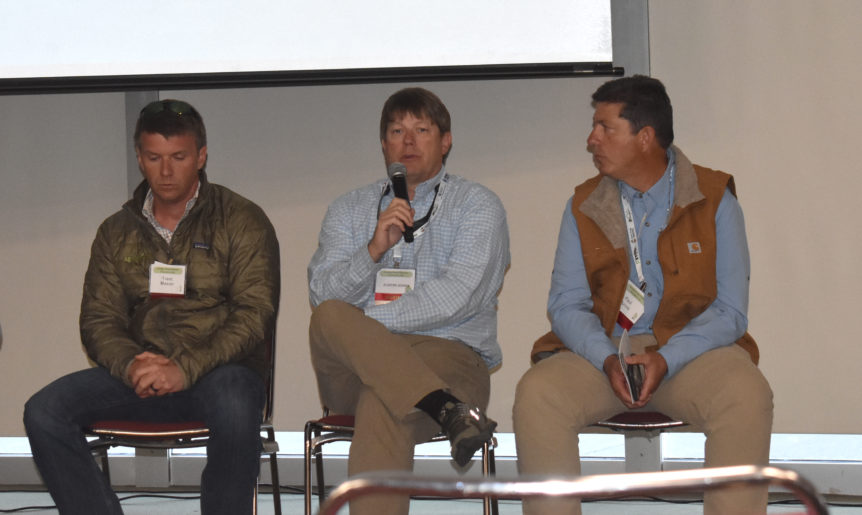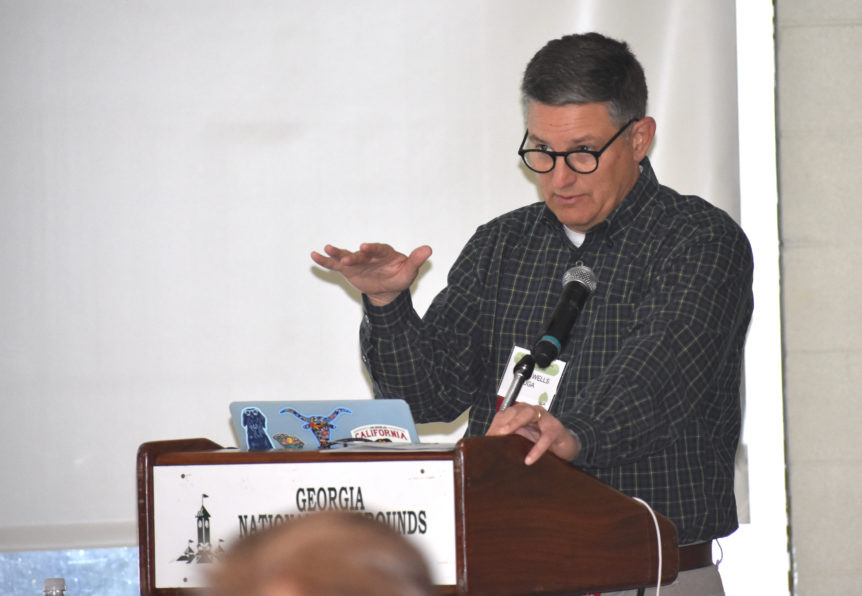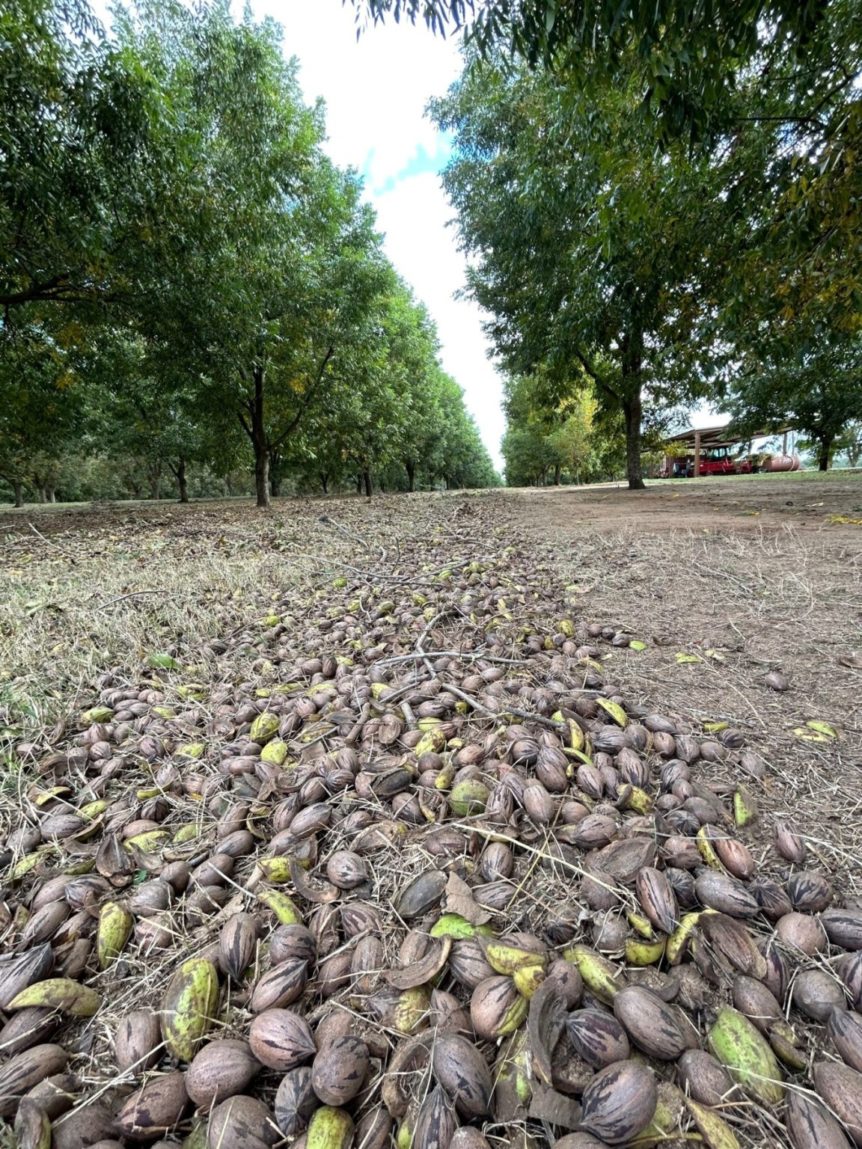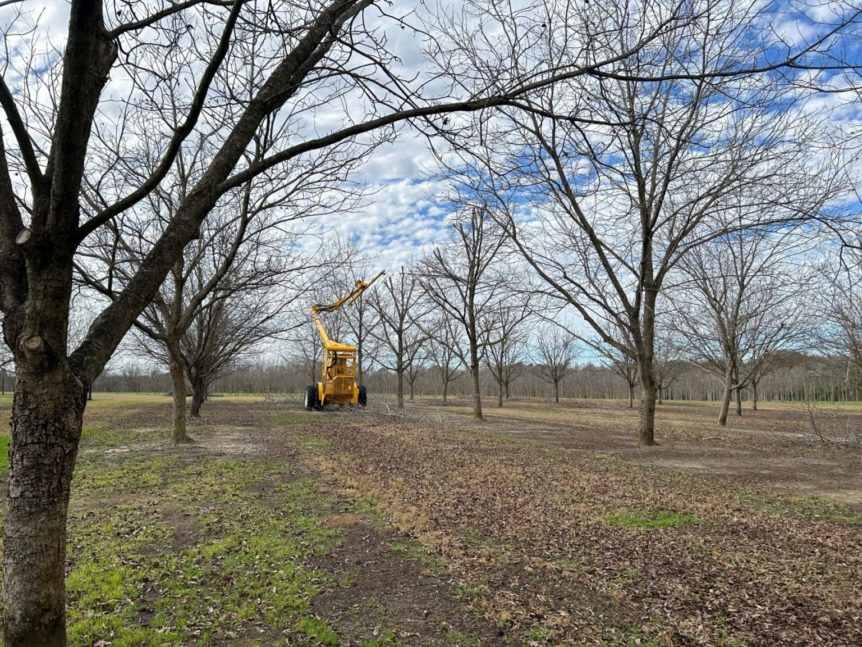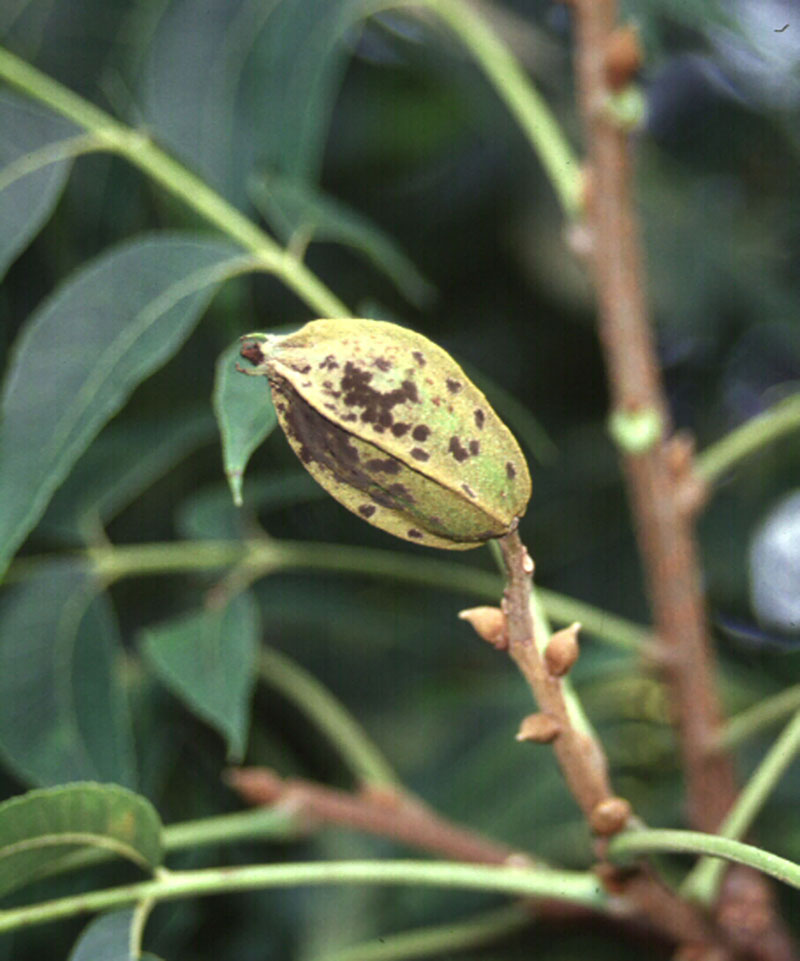By Clint Thompson The five-year average price for pecans, from 2019 to 2023 was $1.69 a pound, which was the market price growers received last year. It does not appear to be going up any time soon, explains Lenny Wells, University of Georgia Extension pecan specialist. “Average price last year across all varieties season long was $1.69. That’s a lot …
Pecan Water Needs: Extension Specialist Highlights Irrigation During UGA School
By Clint Thompson One of the most significant investments a pecan producer can make with their crop is with irrigation. If a grower cannot water their trees regularly, especially during times of the season when the trees need it the most, they will not be able to capitalize with high yields. It is a message that Lenny Wells, University of …
Under the Microscope: Scab Resistance Remains Top Priority for UGA Pecan Breeder
By Clint Thompson One trait remains the focus of the University of Georgia (UGA) pecan breeding program. As UGA pecan breeder Patrick Conner continues to study cultivars of the future, they must possess scab resistance on some level. “It has to have at least good resistance, if not excellent resistance, before we’ll go forward,” Conner said. “Good resistance to me …
Costly Input: UGA Extension Pecan Specialist Discusses Scab Spray Expenses
By Clint Thompson Fungicide applications are one of the most important and costly expenses that pecan producers must make. If they can’t or won’t protect their crop from scab disease, yields will be drastically reduced. It is a message that Lenny Wells, University of Georgia (UGA) Extension pecan specialist, emphasized during the UGA Pecan School on March 20 in Perry, …
Unified Pecan Industry is Better for All Involved
By Clint Thompson A unified pecan industry benefits all states involved. That includes Georgia and Alabama in the Southeast, along with New Mexico and Arizona out west. Georgia producer Justin Jones has experienced the unification first-hand and describes the importance of continuing amid the current challenges impacting the industry. “I go back to using this analogy, a rising tide will …
UGA School: Reminder About How Costly Pecan Production Can Be
By Clint Thompson The University of Georgia (UGA) Pecan School on Wednesday educated potential producers and served as a reminder to veteran growers about the costly expenses associated with pecan production. Costs for required equipment have risen from $533,000 in 2019 to $873,000 in 2023. Input prices have also increased, while pecan prices floundered to an average of $1.69 per …
Pecan Producers Should Revise Water Usage Early in Season
By Clint Thompson Pecan producers should start revising their water usage, especially early in their tree’s history. An overabundance of water could stress the root system, which could make the trees vulnerable during high wind events, according to Lenny Wells, University of Georgia Extension pecan specialist. “From the studies we’ve done looking at water use in pecans, we see certainly …
What a Mess: Pecan Tree Hedging More Efficiently Done During Dormant Season
By Clint Thompson Pecan tree hedging is important to the sustainability of the tree long-term. Whether Southeast growers implement the practice during the dormant or summer season is up to the farmer, says Lenny Wells, University of Georgia Extension pecan specialist. “From as far as the tree is concerned, the way it produces and responds, there’s no real difference between …
Pecan Scab Update: Tighter Spray Intervals, Disease-Resistant Varieties Needed
By Clint Thompson Fungicide applications for pecan scab disease are more effective when implemented on a regular schedule. However, that is easier said than done for pecan producers, believes Tim Brenneman, a plant pathologist with the University of Georgia. “The bottom line is the best way to save money on sprays would be to not spray in the dry periods …
UGA Pecan Specialist: India Has a Lot of Promise
By Clint Thompson The inability for pecan producers to depend on China as a future export destination means Southeast growers must find a viable alternative. With nearly 1.5 billion people, India may be that option that farmers are looking for. Lenny Wells, University of Georgia Cooperative Extension pecan specialist, is highlighting India in his presentations during the winter production meetings. …










